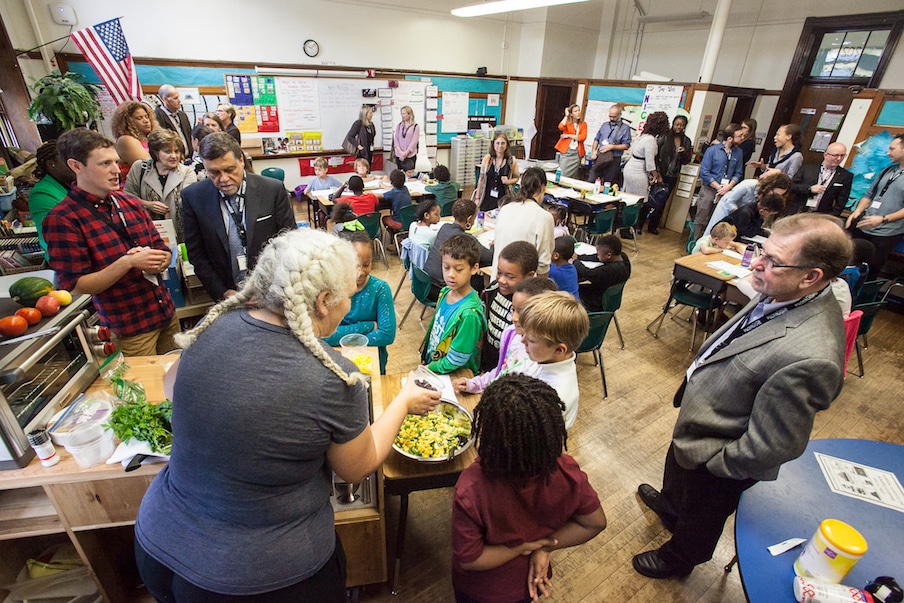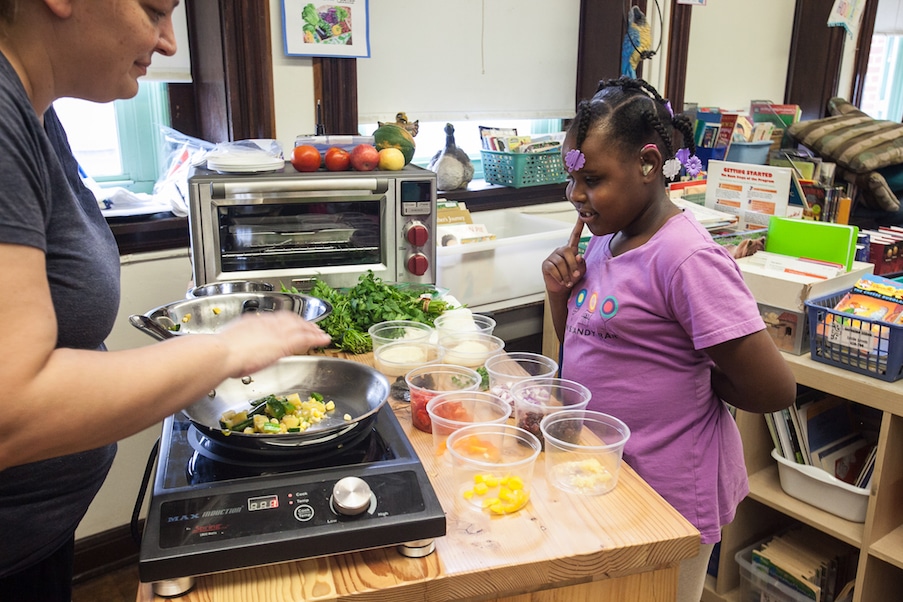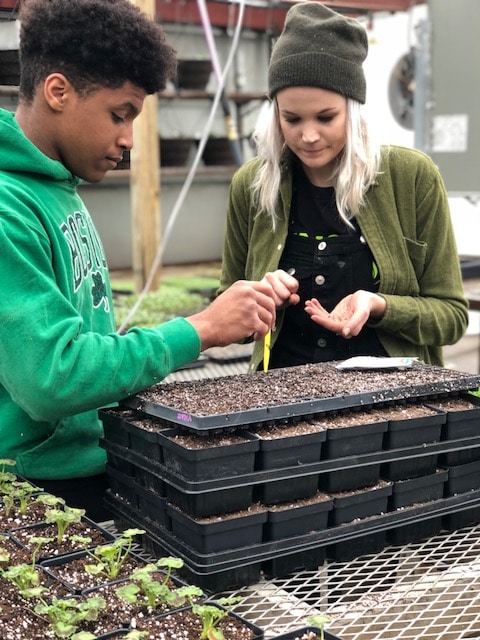Finding Common Ground through Food Education
April 20, 2018

Written by Chandra Garcia-Kitch
I’ve been a Chicago Public Schools (CPS) teacher for the last 16 years on the south and west sides of Chicago. I’ve taught kids from 35 countries who speak different languages, who have different life experiences, and who bring unique stories into my classroom. I’m one of 49 CPS teachers currently enrolled in Pilot Light. This program has made a huge impact on my students by creating conversations about how food connects us and how food is important to who we are. Food education brings my students together. Through food, they find common ground.
Founded by four Chicago chefs, the organization works to provide food education to every child by integrating it into classroom learning. All teachers are provided with curriculum, resources, stipends, and 40 hours of training annually to support us in teaching our students about all aspects of food: where it comes from, how it grows, how it impacts our bodies, and how it connects us with our communities. Pilot Light believes that all children need access to food education, which is as important to growth and development as subjects like math, science, and social students. By supporting teachers in delivering food education as part of classroom instruction, the organization creates sustainable, systematic solution that gives all children access to the food education they need and deserve.
In one particular class, we were working on a unit about bread and immigration. We talked about how the immigration that rebuilt Chicago after the fire helped shape the city. This was a result of people coming from other places and wanting to feel like they’re at home somewhere that is completely different.
Two months later, we had a new student who came from a Syrian refugee camp in Turkey. He spoke little to no English and on his first day he was scared to eat lunch because he didn’t recognize the food and was worried about accidentally eating pork. The other students in my class immediately began opening their lunches to find food that they remembered learning about in our Pilot Light lessons and began sharing. The next day, students quietly came up to me bringing hummus, flatbread, extra cucumbers, carrots and olives with them to make sure this new student had food he recognized and could eat. The students were able to develop their own language through food, asking him how he liked each thing. I think he went away that day feeling a little more comfortable in my classroom, and with friends to come back to.
I don’t think that’s something I could have taught in any other subject or curriculum.
These 8-year-old students recognized and understood the comfort and safety that food can provide when you feel alone and scared, how it connects you to who you are, and how it allows you to express that to others. This is because of Pilot Light.
Every child in Chicago deserves to have access to these conversations, and I’m not the only one that Pilot Light is reaching. Currently, Pilot Light supports teachers and students across 14 Chicago Public Schools, primarily located in underserved communities. In the coming year, Pilot Light will grow to reach more teachers and students, expand its resource library to include more classroom lessons and educational media, and share its new Food Education Standards with national stakeholders. This month, Flowers for Dreams is supporting our vision to provide food education to every child in every school.
Learn more about our food education work at pilotlightchefs.org

Written by Fardowso Shidad
I am currently working at Teens Grow Greens in Milwaukee. What drew me to Teens Grow Greens was their overall goal: To impact the community by first educating the youth. I have always wanted to make a change in my community and this program gave me a chance to take part in activities such as gardening and community service (which I have always seen as a hobby) to better serve my community. The nine-month internship gave me the opportunity to be able to grow as an individual by working with teens with the same mission and by enhancing my leadership & responsibility skills–all while doing things I enjoy. By being educated on issues within my community, I get a better understanding what exactly it is that I can do to help make an impact in my community.

The most important thing that I have learned so far at my time at Teens Grow Greens would have to be about the issue of food deserts within my community. Nearly half of the people who live in food deserts are low-income families. Coming from a low-income family myself and learning that most food deserts are in communities like mine forced me to acknowledge the food deserts located within my own community. I never questioned why corner stores, and fast food stores were more convenient than grocery stores. Only after becoming an intern at Teens Grow Greens did I ever question this fact. After the unit on healthy living, food deserts, and food injustices, my eyes finally opened and I could see the pattern between health-related issues and regions where food deserts were most common.
Learning about food security was essential for me because I am now better educated about the reasoning behind the lack of healthy food in my community and I am motivated to make healthy food more accessible to people within my community.
When growing plants at Weber’s Greenhouse, I enjoy watering the already seeded potting soil because it is the one chance I get to fidget and play around with the hose. Watering is my favorite part about growing plants and is the step I look forward to the most after all the seeds are planted. Making sure that each cell has the exactly one or two seeds is a bit tedious and takes lots of patience when growing plants. That is why the seeding part is my least favorite thing about growing plants. However, I know that all my efforts will be rewarded when the plants bloom and I get a chance to witness the growth of the plants I helped cultivate.
In the future, I want to attend a university and major in political science with a minor in philosophy. I then want to get a Juris Doctor degree in civil rights. I am passionate about fighting for the human rights of people who are denied and oppressed within the global society. I am also passionate about underrepresented groups of people and their rights and freedoms which is why I want to be in a career field which will allows me to put my passions into action and make an impact in the world. Teens Grow Greens will help me achieve my college and career aspirations by helping me hone my responsibility skills and strengthening my leadership skills so that I am well prepared for the events that will hopefully take place in my future.



